Dr. Guru Madhavan received the IEEE Norbert Wiener Award on Friday October 13, 2023, at the IEEE Global Humanitarian Technology Conference (GHTC), Villanova University, Pennsylvania, U.S.A.
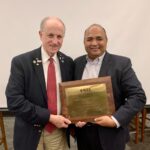


Dr. Guru Madhavan received the IEEE Norbert Wiener Award on Friday October 13, 2023, at the IEEE Global Humanitarian Technology Conference (GHTC), Villanova University, Pennsylvania, U.S.A.
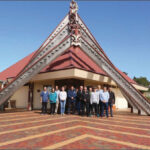
Co-design and development of technology with indigenous communities requires respect and close partnership. Here, we reflect on our experiences working with a Māori (indigenous New Zealand) community as Pākehā (non-Māori). In particular, we consider the importance of protection as an underlying principle.
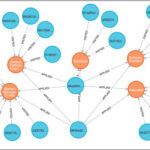
Amid a global labor force crisis, we cannot turn a blind eye to technological solutions. However, we must approach them with caution and prudence to avoid exacerbating existing biases.

The IEEE Society on Social Implications of Technology (SSIT) lost one of its leading lights when Stephen H. “Steve” Unger passed away on 4 July 2023, at the age of 92 (https://technologyandsociety.org/ssit-csit-co-founder-stephen-h-unger-dies/).

The 2024 IEEE International Symposium on Technology and Society will be held in Puebla, Mexico, from September 18-20, 2024, at the Universidad de Las Americas, Puebla (UDLAP). ISTAS24 will be the first ISTAS conference to be held in Latin America.
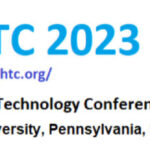
The 13th IEEE Global Humanitarian Technology Conference (IEEE GHTC 2023) will take place in person at Villanova University (Pennsylvania) from October 12 to 14, 2023.

Some topics addressed on the September 13 panel included climate change challenges related to health and healthcare, contributions of computing to the climate change problem in terms of energy use, along with the potential of computing to contribute to solutions to the crisis, agriculture and food security issues related to climate change, systems design, finding solutions and improving communication across IEEE societies, carbon removal, and economic and social aspects of the crisis including forced migration, water supplies, and the responsibilities of developed nations to developing nations in climate change mitigation.

Please join our new IEEE Collabratec Technology and Society Community!

The IEEE International Symposium on Technology and Society (ISTAS 23) continued into its second day of regular programming on Thursday September 14, and included the presentation of a second panel related to climate change, this one focused on “Public Safety Technologies and Climate Change.”
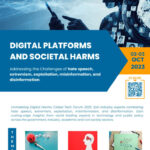
We invite you to join us at Digital Platforms and Societal Harms, taking place 2 and 3 October at American University in Washington, D.C. and with keynote panels also available in hybrid mode to enable online attendance.
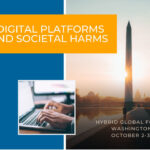
We invite you to join us at Digital Platforms and Societal Harms, taking place 2 and 3 October at American University in Washington, D.C. and with keynote panels available in hybrid mode to enable online attendance, and – this is where you come in – though local in-person events that can be hosted by IEEE Sections or Chapters anywhere in the world.
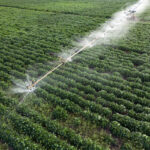
It is fully possible to design diets that are nutritionally adequate, with 65% lower greenhouse gas emissions, and which do not cost more than the baseline diet.
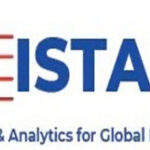
IEEE ISTAS 2023 takes place at Swansea University, Wales from 13 – 15 September. IEEE ISTAS 2023 is the flagship… Read More
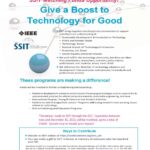
Donations made to SSIT through the IEEE Foundation between now and December 31, 2023, will be matched, up to a total of $5000. Donate now to double your impact!

What role does and can AI play in us being able to enjoy security in our places and spaces? Perhaps we could design technology-enabled spaces for the purpose of strengthening the community and empowering community action.

The purpose of this special issue is to explore and address complex securitization-related challenges, from a broader perspective and across various dimensions and sectors, that transcend disciplinary boundaries, focusing on the role of technology relevant to the securitization of people and place, while also considering the transdisciplinarity and the socio-historical originals of securitization.

Generation Z and Millennials face different types of insider threat, in three different dimensions of space: to resources, to citizenship, and to boundaries.
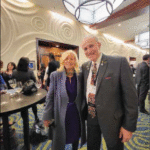
It was a wonderful experience for me to live all of these events and realize later how everything is really connected. Where will new generations of kids get their “social skills” developed, considering that most of their social relations and interactions happen virtually through their phones or computers while avoiding in-person interactions?

Stephen H. Unger, one of the founders of the IEEE Society on Social Implications of Technology, Life Fellow of the IEEE, Professor Emeritus of Computer Science and Electrical Engineering at Columbia University, champion of engineering ethics, and a prominent figure within SSIT, has died at the age of 92.

Ketra A. Schmitt, Associate Professor in the Centre for Engineering in Society at Concordia University, Montreal, Quebec, Canada, will become Editor-in-Chief (EIC) of IEEE Technology and Society Magazine (TSM) starting January 1, 2024.